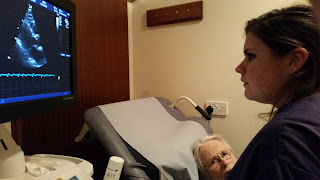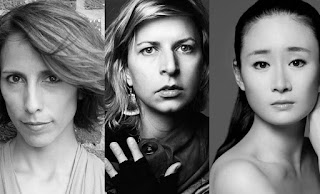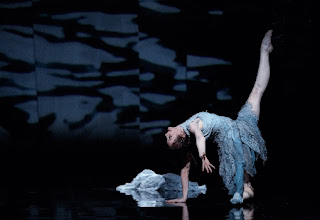“Old men sit in the shade because they planted a tree many years before.” – a traditional Ugandan proverb
In every family there are people who stand out from the crowd – they are the ones to whom the others turn in times of trouble or when needing sage advice. My Uncle Andrew was the pillar and inspiration of his generation. He was an exceptional doctor, with specialist knowledge of tropical diseases, and his working life was devoted to helping the poor of Africa. Have you seen the film, “The Last Kind of Scotland”, much of the story applies to Andrew? Andrew was an engaging, UK-qualified Doctor, with Scottish roots, who went to Uganda to establish world-class healthcare for the people who needed it most. He was much loved and respected – his local name, “Pa Crow”, came about because of his caring observant nature. He was adored by all those who knew him, (but he did not have an affair with Idi Amin’s wife - not least because he preferred men – something punishable by life imprisonment under Uganda’s legislation). As was stated in his obituary in the British Medical Journal, he cared profoundly for the poor and “the rich, if he regarded them in any way as responsible for the plight of the poor, usually received short shrift”). As in the film, my uncle was forced to flee Uganda, under imminent threat of death from Idi Amin’s regime. He was cultured and devoted to continuous learning – his last act, prior to departing Uganda, was the burial of his exceptional library, which included first editions by Sir Richard Burton (the extraordinary Victorian explorer, sexologist and spy) and also his rare collection of Makonde sculptures. The Makonde craftsmen are famous for their “tree of life’ carvings - which show intricately whittled, interconnecting human groups representing unity and continuity. Usually they depict villagers, working together with each other and nature, helping one another, to ensure survival across generations.
 In some ways this blog has a similar theme…
In some ways this blog has a similar theme…
Last year I was asked to mentor an amazing young man as part of the Queen’s Young Leaders Programme – the Programme was established to celebrate and support exceptional young people aged 18-29 (drawn from across the Commonwealth) – each and every one of them is making the world a better place. I mentored Edmund who had founded a charity to support refugees, initially in Kenya but now expanded into other locations. One of the ways I was able to help was by introducing him to some of the people in my network who are involved with charities and one of them was Ian Pettigrew, a learning and development guru and trustee of the charity Retrak. Ian is one of the nicest men I know – generous of spirit, highly intelligent and consistently considerate and encouraging. I count him as a friend and over the years we have discussed the work he has been involved in with Retrak - helping street children in various locations in Africa and South America. He told me his dream of inspiring a group of HR professionals to travel to Africa and share their skills and learning with the children, staff and others. That dream has become a reality - a small group has been chosen from those who applied and will be travelling to Kampala in September 2016 under the banner of Connecting HR Africa.  I am proud to be one of that team.
I am proud to be one of that team.
 I am proud to be one of that team.
I am proud to be one of that team.
This is not “a jolly” it will be hard work and emotionally and physically demanding. I have operated in Africa, admittedly only for short periods and in a very privileged capacity, and for the past twelve years I have supported a bright Kenyan orphan called Catherine, encouraging her through education and the challenges of transitioning from being a child to an independent adult. Although an orphan, in many ways she was fortunate in that she had a place to live, regular meals and access to an education. Retrak helps those who are often less blessed. There are many reasons why children run away from home – abuse, bereavement, trafficking, desperation, etc. I believe children deserve a decent start in life and that those of us who can should help those who are less fortunate. I also know that problems need to be tackled at their root causes and that one of the reasons that there is a flood of migrants trying to escape Africa is because the problems where they come from are not being resolved. Retrak has an excellent track record of achieving lasting results. The last Retrak annual report, ending December 2014, shows that 96 children were rescued from trafficking, 4,265 street and vulnerable children were provided with help in outreach, placement, and follow up, and 605 children were reunited with families. That is an impressive record.

Part of my commitment to Retrak is to raise £2,000 for the charity. If each of my contacts on Social Media donated £1 I would exceed that amount and between us we would make a real difference. I am asking for your help – no matter how small. I promise that while I am in Uganda I will do my utmost to ensure that every penny counts. I am not requesting support for my travel costs or money for me. All sums donated will go to the charity. If you can help please follow this link to make a donation. 

My uncle Andrew didn’t need to go to Africa – he went because he knew he had skills that could make a difference. In a lesser way I wish to follow in his footsteps. I can never match his brilliance - Andrew was an amazing man in so many ways – although not affluent, he was dazzling – both to look at and in discussion. He was a true renaissance man, well read, cultured, artistic and accomplished (he was also a wonderful cook). He grew up on the fringes of the Bloomsbury Group and was close friends with Evelyn Waugh (I often felt he was like a character in Brideshead Revisited); he became a trustee for Lord Berners’ musical legacy; socialised with The Betjemans, HG Wells, Robert (“Mad Boy”) Heber-Percy, Coote and the Mitfords. He could have remained in the UK all his life, been a socialite and shone, but he preferred a harder path, to toil where his skills could add value. 

Andrew in Africa
Andrew only returned to the UK when his own health failed him – he contracted TB and was too unwell to work. He was granted an OBE for his services to Africa but had no pension or savings to support him (he had lost his life savings in Uganda), so he lived with his mother and, when she died, he moved to Somerset to be near his sisters (one of whom is my mother). As many of you know, my mother is currently unwell. I suppose part of my wishing to go to Uganda is to complete the circle. Andrew was my godfather as well as my uncle and I would like to do something worthy of his memory. Uncle Andrew died in my mother’s arms whilst she sang to him the lullaby their mother had sung to them as children.

A picture of Andrew and my mother
He had no offspring of his own, he never married, but he cared. The theme of children and leaving a lasting legacy is strong – like one of his precious Makonde “Tree of Life” carvings, I wish to be part of a community working together to ensure survival and success for the generations to come.
I would be very grateful for your support.














